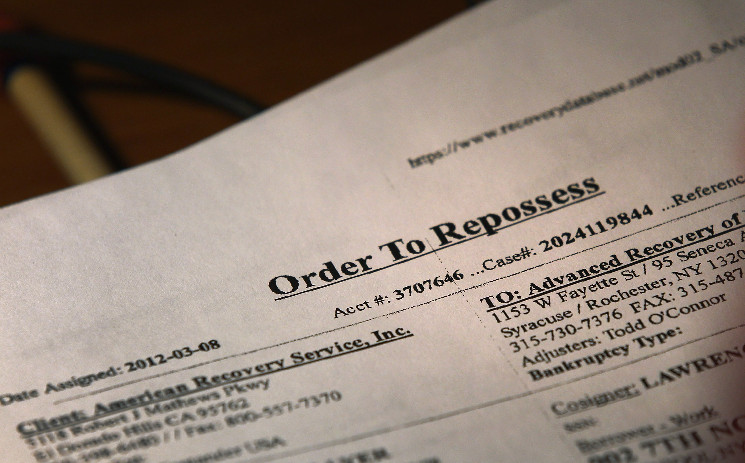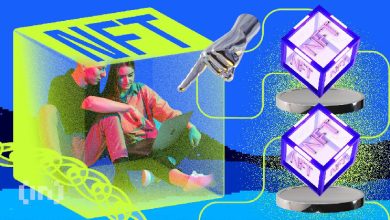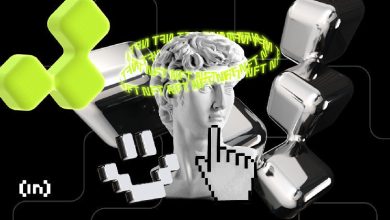NFTs Are Now Collateral for Secured Loans. Are You Legally Protected?

www.coindesk.com
11 July 2022 18:38, UTC
Studying time: ~5 m
No matter private views, it has grown close to inconceivable to not take discover of non-fungible tokens (NFT). Even with current slowdowns, whole NFT gross sales quantity might prime $90 billion by the top of this yr (after seeing a file $40 billion in 2021). That success has introduced a brand new kind of curiosity from a brand new group of individuals within the NFT ecosystem – lenders.
And with a brand new participant within the NFT house comes a brand new label for NFTs – collateral.
Whether or not it’s an NFT-secured mortgage, a used automotive mortgage or a multimillion-dollar leveraged finance of a whole firm, the motivations of lenders and debtors are constant. The lender is incentivized to offer non permanent funds to the borrower in alternate for an rate of interest charged on prime of the principal mortgage quantity. The borrower is prepared to pay the rate of interest as a result of they want an instantaneous supply of liquid funds with out promoting the asset.
What does change in every asset class is how the lender is protected against a borrower’s non-payment of the mortgage, or “default.” In a used-car market, the lender receives possession of the automotive if the borrower defaults. A deep basis of secured lending rules (primarily Article 9 of the Uniform Business Code, or UCC) offers lenders the mandatory confidence that this automotive possession switch will happen with or with out the defaulting borrower’s cooperation.
So what secured lending rules apply to NFTs?
Jeff Karas is an legal professional on the legislation agency of Anderson Kill. This text is excerpted from The Node, CoinDesk’s every day roundup of essentially the most pivotal tales in blockchain and crypto information. You’ll be able to subscribe to get the total newsletter here.
Whereas easy in concept, and even in sensible contract execution (if borrower doesn’t pay, then the NFT transfers from borrower pockets to lender pockets), the authorized protections of utilizing an NFT as collateral is a sophisticated query of “perfection” of the lender’s safety curiosity. An NFT is just not a automotive, and beneath the present UCC rules an NFT is just not even “artwork.” It’s almost definitely both a “normal intangible,” which is successfully the UCC’s overflow bucket mostly used for troublesome to categorize collateral, or it’s an “funding property,” which is a time period encompassing securities and different security-like monetary belongings.
If an NFT is a normal intangible, then the lender’s easiest path to perfection is by way of the submitting of a UCC-1 Financing Assertion within the state the place the NFT proprietor is deemed to be situated. Figuring out a automotive proprietor’s authorized title and placement could also be easy, however within the digitally native and sometimes deliberately nameless world of NFTs, a lender could discover it troublesome to know the exact submitting jurisdiction to good their curiosity in a Bored Ape owned by “MoonBoiBallz99.” This hurdle makes perfection by submitting of a UCC-1 an impractical resolution at greatest, and a idiot’s errand at worst.
Perfection of an NFT labeled as funding property could also be extra applicable for crypto centered lenders and debtors. A safety curiosity in an funding property is perfected by “management.” A lender can acquire management beneath the UCC if (1) the NFT is deposited instantly into the lender’s pockets, which can be uncomfortable for the borrower, or (2) the NFT is transferred to a 3rd social gathering and an settlement is signed by the lender, the borrower and the third social gathering. Beneath this tripartite settlement, the borrower grants a lender the safety curiosity within the NFT, however the NFT is held in a selected account (or pockets) with the third social gathering. That third social gathering, in flip, agrees to solely observe the instructions of the lender, thereby giving the lender “management” of the NFT, perfecting their safety curiosity.
Three-party agreements of this taste, usually known as an “account management settlement,” are frequent in conventional lending ecosystems the place the third social gathering is a financial institution or bank-like entity. Nevertheless, banks are extra usually labeled because the “enemy” than anybody’s trusted intermediary within the cryptocurrency and NFT house, so any legitimization of NFT lending would require new tasks to fill this void.
A number of groups have already dipped their toes into the NFT lending waters with assorted fashions of execution and broadly various ranges of actual and perceived authorized protections at their core. Probably the most used instance to this point is the South African undertaking NFTfi, which has facilitated practically 13,000 loans and a complete cumulative mortgage quantity of over $212 million since its inception (in keeping with statistics obtainable from Dune Analytics). NFTfi’s agreements between the borrower and lender are primarily based completely on sensible contracts “signed” by every social gathering, however it’s unclear at an preliminary look how tight these contracts are from a authorized safety perspective. No plain language agreements are introduced to any lender or borrower on the NFTfi system, however it’s reported that over 20% of all loans are defaulted on and there have been no publicized failures within the switch of the collateralized NFT upon any borrower’s default.
Different NFT lending platforms have began to pop up in current months (together with Arcade, which accomplished a $15 million Sequence A funding spherical in December led by Pantera Capital). Extra are on the best way. Some are primarily on-chain companies like NFTfi, whereas others, like Nexo.io, are promising a extra nuanced, over-the-counter strategy (together with a proper software course of for every borrower). Regardless of the methodology, it’s unclear how a lot any of those new platforms will deal with the authorized enforceability of their lending agreements.
It’s potential that, as in lots of marketplaces, there is not going to be a name for any strenuous authorized protections till there is a matter value disputing or a problem large enough to make headlines. When that point comes, crypto and secured lending attorneys must be prepared to choose up their outdated copy of the UCC and perceive the distinctive crossroads blockchain has delivered to the house (once more).





